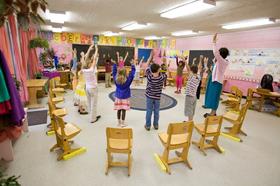First-Generation Students from Private Schools at Community Colleges: Unique Challenges and Supports
First-generation students from private schools at community colleges have become a quietly growing population in recent years. These students occupy a distinctive space in the higher education landscape because they come from academically resourced K–12 environments but enter college without the intergenerational knowledge, pathways, or cultural familiarity often common among peers in four-year institutions. Understanding the needs of first-generation students from private schools at community colleges is essential for counselors, families, and institutional leaders seeking to build equitable and supportive learning environments.
While private schools have long guided students toward selective four-year colleges, increasing numbers of graduates have turned to community colleges due to financial considerations, clearer transfer pathways, or personal preference for smaller class sizes and flexible scheduling. This shift has created new questions about how first-generation students from private schools at community colleges experience the transition.
Below is an in-depth examination of the challenges, support structures, and strategies that shape the academic journeys of first-generation students from private schools at community colleges in 2025.
The Changing Landscape for First-Generation Students from Private Schools at Community Colleges
Private schools historically cultivate structured college counseling programs and emphasize postsecondary placement. Yet even with these resources, many first-generation students from private schools at community colleges report gaps in understanding how higher education works. Their parents may not have attended college, and the family’s financial planning around postsecondary education may be limited.
Recent enrollment data from community colleges nationwide highlights a continued rise in students with private school backgrounds seeking affordable alternatives. For context on community college environments, readers may refer to the broader overview available on Community College Review.
First-generation students from private schools at community colleges typically arrive with strong academic preparation. They have benefitted from small class sizes, individualized attention, and co-curricular programming. However, they simultaneously face unfamiliar terrain when navigating course selection, advising, transfer requirements, and financial aid. The combination creates a unique set of challenges.
Why First-Generation Students from Private Schools Choose Community Colleges
Several factors contribute to this increasing trend among first-generation students from private schools at community colleges:
Financial reality
Even with scholarships, private school families may feel the financial strain of four-year tuition. Community colleges offer a cost-effective entry point.
Transfer pathways
States have strengthened transfer agreements that allow students to complete general education requirements before moving to a university. First-generation students from private schools at community colleges often view this path as lower risk and more affordable.
Flexibility
Many first-generation students from private schools at community colleges balance work responsibilities, family commitments, or pre-professional programs that community colleges accommodate through hybrid and evening schedules.
Confidence building
Some graduates need more time to clarify their academic goals before committing to a four-year program. Community colleges serve as a deliberate stepping stone.
To understand differences between school options more broadly, families may benefit from comparisons like those available on Private School Review.
Challenges Faced by First-Generation Students from Private Schools at Community Colleges
Although they arrive academically prepared, first-generation students from private schools at community colleges frequently encounter challenges in four primary areas.
Limited College Knowledge
Without parents or guardians who attended college, first-generation students from private schools at community colleges must navigate unfamiliar systems, including:
FAFSA and financial aid appeals
Transfer articulation agreements
Placement exams and prerequisites
Registration deadlines
Advising structures
Their private school experience may not have included detailed information about community college processes, leaving significant gaps in understanding.
Social and Cultural Adjustment
First-generation students from private schools at community colleges may experience culture shifts. Private schools often provide insular and close-knit communities. Community college campuses, in contrast, tend to be larger, more diverse, and more fluid, with students balancing work and family obligations.
This transition can be disorienting. Students may feel academically confident but socially disconnected.
Navigating Independence
Community colleges require substantial self-advocacy. First-generation students from private schools at community colleges must learn to:
Communicate with professors
Pursue tutoring proactively
Interpret degree plans
Manage schedules independently
These skills are not always emphasized in structured K–12 settings.
Misaligned Expectations
Families accustomed to the high-touch environment of private schools may be surprised by the self-directed culture of community colleges. First-generation students from private schools at community colleges sometimes report difficulty explaining this new environment to family members who want clearer guidance but lack familiarity with the system.
Supports That Improve Outcomes for First-Generation Students from Private Schools at Community Colleges
To support the academic and emotional success of first-generation students from private schools at community colleges, institutions have developed frameworks that strengthen transition points.
Strengthened Advising Systems
Community colleges offering early advising, guided pathways, and mandatory orientation see improved persistence rates for first-generation students from private schools at community colleges. Advisors help students understand degree requirements, map transfer timelines, and select appropriate entry-level courses.
Students and families may explore advising structures and academic pathways through detailed overviews on Public School Review, which frequently highlights district-to-college transitions.
First-Generation Programs
Many colleges now provide specialized programming for first-generation learners, including:
Summer bridge initiatives
Peer mentoring
First-year seminars
Workshops on financial literacy
These services reduce barriers for first-generation students from private schools at community colleges by offering structured touchpoints and stronger community ties.
Expanded Mental Health and Wellness Options
Transition stress can affect all first-generation students, including those from private school backgrounds. Community colleges with robust counseling services help students calibrate workload expectations, manage anxiety, and build healthy routines.
Transfer Support and University Partnerships
Because many first-generation students from private schools at community colleges plan to transfer, clear advising for four-year pathways is essential. Colleges offering joint admissions agreements, embedded university advisors, or guaranteed transfer options help reduce confusion around requirements and timelines.
Families researching the admissions landscape may benefit from related resources on boarding school pathways at Boarding School Review, particularly when examining long-term college outcomes.
What Families and Counselors Should Consider
Whether in a private school counseling office or a community college advising center, professionals play a central role in supporting first-generation students from private schools at community colleges. Below are key considerations.
Encourage Realistic Planning
Families should discuss financial expectations, transfer goals, and scheduling needs early. A clear plan helps first-generation students from private schools at community colleges make informed decisions.
Connect Students With Role Models
Hearing from other first-generation students who completed community college and transferred successfully is powerful. Mentorship normalizes challenges.
Advocate for Balanced Course Loads
Overloading credits can overwhelm first-generation students from private schools at community colleges, especially when they are learning to navigate new systems. A balanced schedule builds confidence.
Reinforce Self-Advocacy Skills
Private school graduates may not be used to initiate help. Counselors can model how to email professors, use office hours, and leverage campus resources.
Summary Table: Unique Needs and Supports for First-Generation Students from Private Schools at Community Colleges
| Category | Unique Need | Effective Support |
|---|---|---|
| College Knowledge | Understanding registration, financial aid, transfer rules | Early advising, first-year seminars |
| Social Adjustment | Transition from small private setting to diverse campus | Peer mentoring, student organizations |
| Academic Navigation | Independent course planning, degree management | Guided pathways, proactive advising |
| Emotional Well-Being | Managing stress and expectations | Counseling services, wellness workshops |
| Long-Term Planning | Goal clarity and transfer strategy | University partnerships, articulation agreements |
Looking Ahead
As more families explore financially sustainable postsecondary options, the number of first-generation students from private schools at community colleges will continue to grow. Their blend of academic preparation and first-generation challenges creates a profile unlike any other student group. Institutions that develop nuanced, flexible, and equity-driven frameworks will be best positioned to support them.
First-generation students from private schools at community colleges are capable, ambitious, and resourceful. With the right support, they thrive academically, transfer successfully, and contribute meaningfully to their communities. The key is recognizing their unique experience and building systems that help them navigate what comes next.














